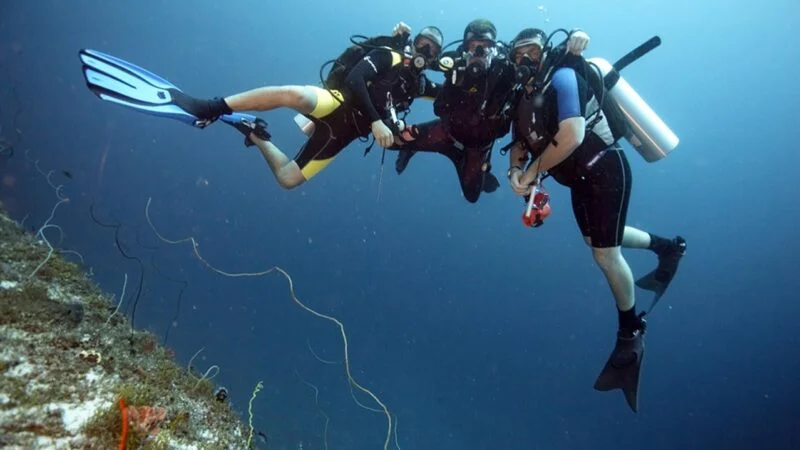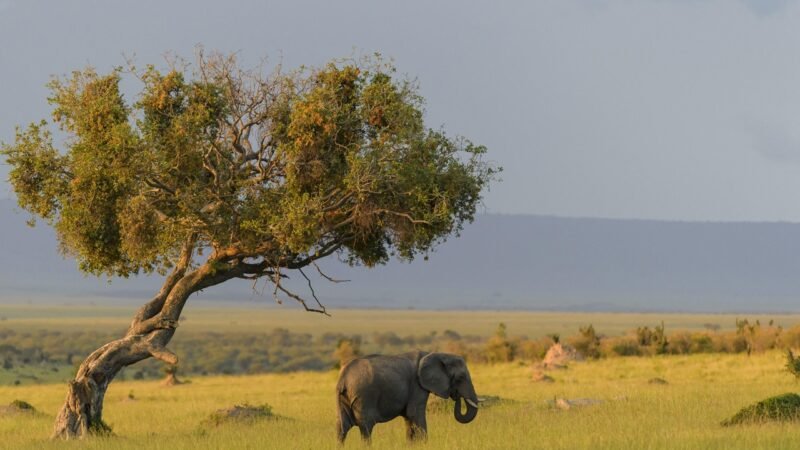Zanzibar Sustainable Travel 2025
Zanzibar Sustainable Travel 2025: Eco-Friendly Adventures on the Spice Island
Zanzibar, Tanzania’s tropical paradise, captivates with its turquoise waters, Swahili culture, and vibrant history as the Spice Island. As tourism grows, so does the need to protect its pristine ecosystems and cultural heritage. In 2025, Zanzibar is leading the way in sustainable travel with eco-friendly resorts, community-led tours, and conservation initiatives. This Zanzibar sustainable travel guide for 2025 offers tips for exploring the island responsibly, from low-impact activities to supporting local communities. Whether you’re snorkeling in marine reserves or staying in eco-lodges, here’s how to experience Zanzibar’s magic while preserving its beauty.
Why Choose Sustainable Travel in Zanzibar in 2025?
Sustainable travel in Zanzibar means minimizing your environmental footprint while supporting local economies and culture. In 2025, the island is enhancing its eco-tourism efforts with new solar-powered accommodations, coral restoration projects, and community-driven experiences. By choosing sustainable options, you help protect Zanzibar’s reefs, forests, and Swahili traditions for future generations.
Key Highlights for 2025:
- New eco-lodges in Paje, Nungwi, and Chumbe Island.
- Expanded conservation programs at Mnemba Atoll and Jozani Forest.
- Community-led tours supporting local artisans and farmers.
Eco-Friendly Accommodations
Zanzibar offers a range of sustainable stays that prioritize low environmental impact and community support.
- Chumbe Island Eco-Lodge: Located in the Chumbe Island Coral Park, this award-winning lodge ($200–$300/night) uses solar power, rainwater harvesting, and composting toilets. Profits fund coral conservation and local education.
- Zuri Zanzibar (Kendwa): A luxury eco-resort ($300+/night) with solar energy, zero-plastic policies, and locally sourced materials. In 2025, new wellness programs will promote sustainable living.
- Paje by Night (Paje): A budget-friendly option ($30–$60/night) with solar-powered showers and partnerships with local seaweed farmers.
- Eco & Culture Bungalows (Jambiani): Affordable bungalows ($40–$80/night) built with local materials, supporting community projects like beach cleanups.
Booking Tip: Book directly with eco-lodges or via platforms like Booking.com to ensure availability, especially during peak seasons (June–August, December–February).
Pro Tip: Look for certifications like EcoTourism Kenya or Green Globe to verify sustainability claims.
Sustainable Activities in Zanzibar
Zanzibar’s natural and cultural attractions offer plenty of low-impact ways to explore. Here are the top eco-friendly activities for 2025.
1. Snorkel and Dive at Mnemba Atoll
Mnemba Atoll, a protected marine reserve, is a snorkeling and diving hotspot with vibrant coral reefs and marine life like dolphins and turtles. Eco-conscious operators like One Ocean and Zanzibar Dive Centre ($50–$150) use low-impact boats and support reef restoration. In 2025, new coral planting workshops will let visitors contribute to conservation.
Why It’s Sustainable: Tours fund marine protection and limit group sizes to reduce environmental stress.
Tip: Avoid touching corals and use reef-safe sunscreen (biodegradable, no oxybenzone).
SEO Note: Search “Zanzibar sustainable snorkeling 2025” for updated eco-tours.
2. Explore Jozani Forest
Jozani Chwaka Bay National Park, home to the endemic red colobus monkey, is a biodiversity haven. Guided tours ($15–$25) and new eco-trails in 2025 use boardwalks to minimize forest impact. Kayaking through mangrove channels ($30–$50) offers a low-carbon adventure, with proceeds supporting park conservation.
Why It’s Special: Jozani’s community-managed programs protect wildlife and employ locals.
Tip: Visit early morning for cooler weather and active wildlife.
3. Join a Community-Led Spice Tour
Spice tours ($15–$25) showcase Zanzibar’s agricultural heritage, with visits to farms growing cloves, vanilla, and cardamom. Operators like Zanzibar Spices Tours partner with local farmers, ensuring profits stay in the community. In 2025, new women-led farm tours will highlight sustainable agriculture and include spice-blending workshops.
Why It’s Sustainable: Supports small-scale farmers and promotes organic practices.
Tip: Buy spices directly from farmers for authentic, eco-friendly souvenirs.
4. Visit Chumbe Island Coral Park
Chumbe Island, a private eco-reserve, offers snorkeling and diving in a protected coral sanctuary ($40–$150). Guided forest walks ($20) explore its rare ecosystems, and new 2025 marine biology workshops teach visitors about conservation. All activities fund Chumbe’s environmental programs.
Why It’s a Must: Chumbe is a global leader in sustainable tourism.
Tip: Book in advance, as daily visitor numbers are capped to protect the island.
5. Cycle Through Rural Villages
Biking tours ($15–$30) in villages like Jambiani, Kizimkazi, or Matemwe offer a low-carbon way to explore Swahili life. Community-led tours, expanding in 2025, visit seaweed farms, fishing communities, and local schools, with proceeds supporting village projects. Rent bikes ($5–$10/day) for a DIY adventure.
Why It’s Sustainable: Cycling reduces emissions, and tours empower local guides.
Tip: Bring small gifts like notebooks to donate to village schools.
Sustainable Dining
Zanzibar’s food scene offers eco-friendly options that support local farmers and fishermen.
- Forodhani Night Market (Stone Town): Buy from vendors using local ingredients, like urojo ($2) or grilled fish ($3–$5). Choose stalls with reusable plates to reduce waste.
- Lukmaan Restaurant (Stone Town): Affordable Swahili dishes ($4–$8) sourced from local markets, minimizing food miles.
- Mr. Kahawa (Paje): A beachfront cafe ($3–$7) using locally grown produce and seafood, with compostable packaging.
- Farm-to-Table Tours: New 2025 spice farm dinners ($15–$25) feature organic, locally sourced meals.
Pro Tip: Carry a reusable water bottle to avoid single-use plastics. Try tamarind juice ($1) for a sustainable refreshment.
Eco-Friendly Transportation
Getting around Zanzibar sustainably is easy and affordable:
- Dala-Dalas: Local minibuses ($0.50–$2) are low-cost and reduce emissions by sharing rides.
- Bicycles: Rent bikes ($5–$10/day) in Paje or Jambiani for eco-friendly exploration.
- Walking: Stone Town and beachfront areas are walkable, saving fuel and money.
- Shared Taxis: Split taxis with other travelers ($5–$10 per person) for longer trips like Stone Town to Nungwi.
Tip: Use offline maps like Maps.me to navigate biking or walking routes.
Practical Tips for Sustainable Travel
- Best Time to Visit: June–August and December–February offer dry weather for outdoor activities. November’s short rains are quieter and still sustainable.
- Cultural Respect: Dress modestly (covering shoulders and knees) in villages and Stone Town. Ask permission before photographing locals.
- Reduce Waste: Carry a reusable bag, bottle, and cutlery. Avoid plastic straws and bags at markets.
- Support Locals: Buy souvenirs like kangas or spices from community markets like Darajani ($5–$15). Choose local guides for tours.
- Health and Safety: Use mosquito repellent (malaria risk) and stick to bottled water. Secure valuables in crowded areas.
- Conservation: Join beach cleanups or coral planting activities to give back.
Sample 5-Day Sustainable Itinerary
Day 1: Arrive in Stone Town. Stay at Zanzibar Hostel ($20). Explore Darajani Market and eat at Forodhani ($5).
Day 2: Join a community-led spice tour ($15). Stay at Paje by Night ($30). Walk Paje Beach (free).
Day 3: Snorkel at Mnemba Atoll with One Ocean ($50). Dine at Mr. Kahawa ($5).
Day 4: Cycle through Jambiani village ($15). Stay at Eco & Culture Bungalows ($40). Eat local fish ($4).
Day 5: Visit Jozani Forest ($15). Return to Stone Town via dala-dala ($2) and depart.
Total Cost: ~$200–$250 for 5 days, excluding flights.
Why Sustainable Travel in Zanzibar in 2025?
Zanzibar’s commitment to eco-tourism in 2025 makes it a top destination for conscious travelers. By choosing sustainable accommodations, activities, and dining, you support local communities and protect the island’s natural beauty. From snorkeling in protected reefs to biking through villages, your trip can leave a positive impact.
Plan your eco-friendly adventure now! Share your sustainable travel tips or questions in the comments, or explore our Zanzibar Travel Guide 2025 for more inspiration!


